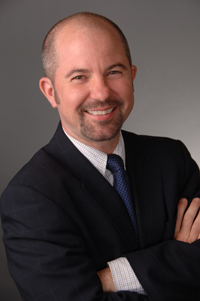
Mayor Sanders, the former Police Chief of San Diego, testified about the evolution of his own support for marriage equality. Many years ago, he came to believe that harassment against gay people was wrong after seeing a good police officer hounded out of the department for being gay. Mayor Sanders also testified that he had shared a close relationship with his daughter, Lisa, who is a lesbian, and worried about her because of the persistence of hate crimes and discrimination against LGBTQ people. But as recently as 2007, he continued to believe and to take the public position that civil unions were equal to marriage.
In 2007, Mayor Sanders had publicly committed to veto a San Diego City Council resolution authorizing the filing of a supportive brief in the California marriage case. He testified that the night before he was to veto the resolution, he spoke with same-sex couples, and was overwhelmed by the “depth of hurt” these couples experienced from being treated unequally. Despite his political commitments, Mayor Sanders testified, “I could not bring myself to tell an entire group of people that they were unequal . . . I couldn’t look them in the face and tell them their relationships were any less meaningful than the relationship I shared with my wife.”
Unable to go forward with the veto, Mayor Sanders testified that he “decided to lead with my heart and take a stand on social justice,” publically announcing his change of position. His courageous statement was widely covered in the media and can be viewed here. Mayor Sanders testified that the Republican Party was unhappy with his support of marriage equality and almost pulled its support for his candidacy.
Mayor Sanders also testified about his deep love and admiration for his daughter Lisa and her spouse Megan, whom he described as “a third daughter.” He described their relationship as “an example of persevering, of going to great lengths to show their commitment to one another.” Because they were unable to marry in California, Lisa and Megan married in Vermont. Mayor Sanders testified that he felt that Lisa and Megan shouldn’t have had to travel to another state to get married and that “my daughter deserves to have the same right to have a wedding in front of family and friends as anyone else.”
On cross-examination, attorney Brian Raum of the anti-LGBTQ Alliance Defense Fund tried to turn Mayor Sanders’ own support for equality into an argument that same-sex couples no longer face discrimination. Raum also asked questions about whether there are gay people in the San Diego police force or on the City Council, as though this would prove that gay people face no unfairness at all. Mayor Sanders reiterated that Proposition 8 treats same-sex couples as second-class citizens, period. Mayor Sanders also reiterated that his prior support for domestic partnership rather than marriage for same-sex couples was “grounded in prejudice.”
Raum also pressed Mayor Sanders for an admission that Proposition 8 passed not because of prejudice against gay people, but because of “violence” by people on the No on 8 side. Mayor Sanders refused to go along with the notion that Proposition 8 was the product of anything other than unfairness, and also testified that his only experience with violence in the campaign was when his own “No on 8″ sign was vandalized by Prop 8 supporters.
Professor M.V. Lee Badgett, an economics professor at University of Massachusetts Amherst, was today’s second witness. Professor Badgett is the leading national expert on the economic impact of marriage bans and, most recently, the author of When Gay People Get Married. Professor Badgett offered four expert opinions: (1) marriage bans cause serious financial harm to same-sex couples; (2) letting same-sex couples would cause no harm to the institution of marriage; (3) same-sex couples are similarly situated to heterosexual couples demographically and economically; and (4) marriage bans cause significant financial harm to the state. Professor Badgett did a masterful job of presenting the existing empirical research on these issues, much of which she has conducted herself.
Charles Cooper cross-examined Professor Badgett for nearly three hours, by far the longest examination of the day. In a pattern that has now become familiar in this trial, Cooper spent most of his time trying to poke holes in various minor details of Professor Badgett’s analysis, without challenging her larger conclusions. Cooper’s examination fell especially flat when he put charts in front of Badgett that he claimed showed marriage equality in the Netherlands had led to lower rates of marriage, larger numbers of unmarried couples raising children, and larger numbers of single parents raising children. Professor Badgett did not agree with his characterizations, saying that these changes seemed to reflect long-term trends that were not affected in any way by permitting same-sex couples to marry, and stating that a longer range of dates needed to be studied before drawing any conclusions. On redirect, plaintiffs’ attorney David Boies skillfully exploited the weakness of Cooper’s charts, putting up much longer-term data that made clear that there has been no significant change at all in long-term trends in rates of marriage and unmarried parenting in the Netherlands since same-sex couples have been permitted to marry. Moreover, in Massachusetts, the data showed that marriage rates have actually increased since the arrival of marriage equality in 2004, and divorce rates there have decreased more than in the United States as a whole.
Tomorrow we’ll hear from more of plaintiffs’ witnesses, most likely including video deposition testimony from some of the official sponsors of Prop 8. Plaintiffs are expected to finish their case tomorrow or Friday, and then it will be the defense’s turn.









